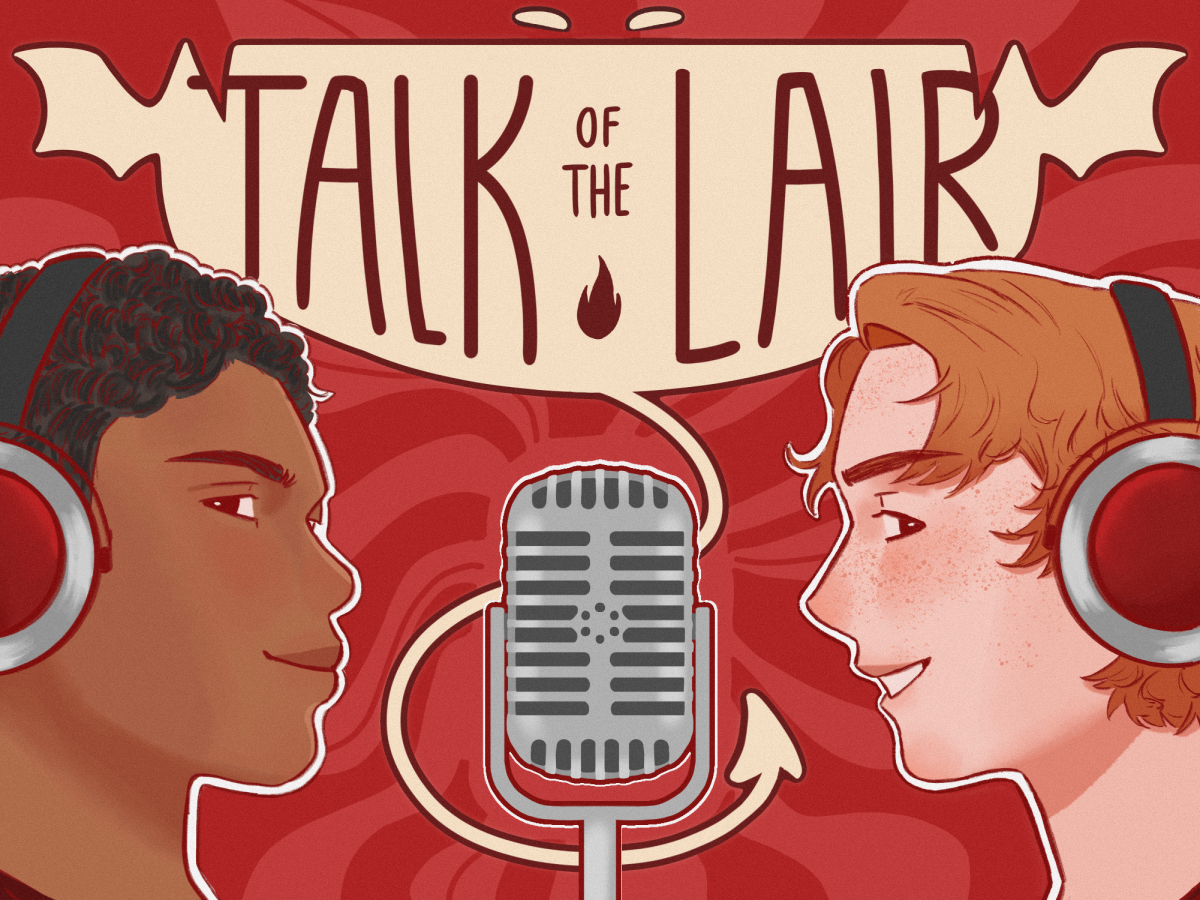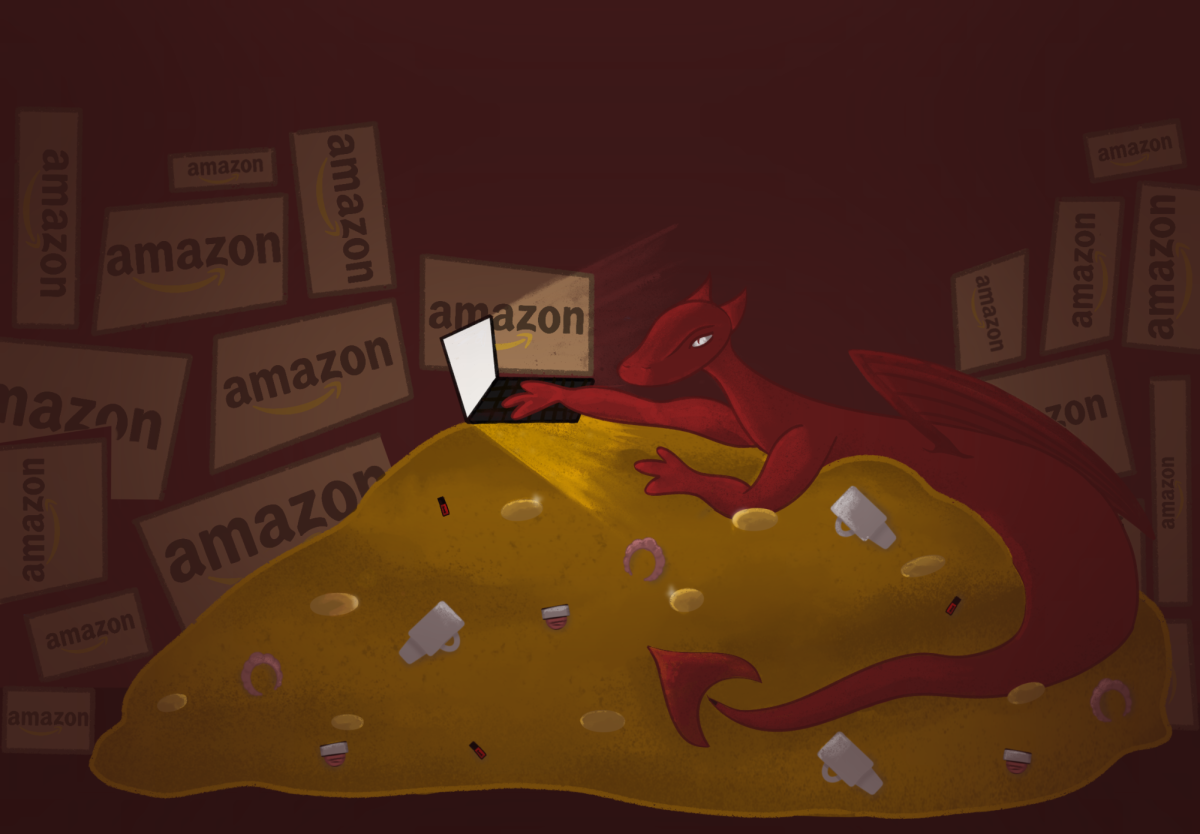
I am just a high school student with the fears and hopes and ambitions that every teenager has. I know nothing of what goes in the minds of, say, CEOs, those materially successful people who are the monarchs of our economy.
I do know this, though: a company, whether for profit or not, should not overstep the bounds of morality.
You may have heard the ruckus going on lately about the increase in cost for the EpiPen. Why is this such a big deal? Epinephrine is a form of adrenaline, which can be administered in shot form as the product EpiPen.
It is used for people with life-threatening allergies, buying them a few life-saving minutes by delaying the effects long enough for emergency services to arrive and continue medical care.
It is not enough to simply emphasize that it saves lives. If EpiPen is inaccessible to certain people, one encounter with peanuts, for example, can be deadly.
Mylan, a pharmaceutical company who bought the company that originally sold EpiPens largely dominates the market for epinephrine. In short it has a monopoly on the medicine. In the past nine years its annual revenue has increased from $200 million in 2007, to $1.1 billion in 2016.
The price of a two-package EpiPen has soared rapidly in the past years, from around $100 to the $600 mark right now: a 500 percent increase.
The most unfair thing is that parents are forced into making certain decisions that could fatally affect their children. The price plants insidious doubt that can cause huge repercussions. Is it really necessary to spend so much money on a precaution? What if this incident I’m dreading never happens? What about my other children?
The cost of EpiPen, combined with the fact that the drug expires every 8-12 months and must be replaced, is astronomical. Considering the amount of epinephrine inside each shot is only worth about $1, Mylan’s decision to raise the cost even more outrageous.
Epinephrine is a safety net, a precaution in the event that an allergen contaminates the food of people with severe allergies. Without it, they die. Is it too much to ask for EpiPen to be affordable?
That is not to say there aren’t logical reasons for raising the price. Business is business after all, and we have a capitalistic economy. Not every company that raises the price of its merchandise is cutthroat with unethical practices. Not everything can be charity; the company needs to survive as well.
However, does it justify raising the price of a life saving drug that equips homes and schools by 500 percent? No. There are people with severe allergies, people who are in danger, people whose lives matter far more than an atrocious marketing strategy.
It’s a grim situation. Do you have a friend with an allergy? When we think of allergies, what usually comes to mind are hives or a sniffly nose, a little redness in the face for a few hours, no big deal. To others, it means pain, panic, suffocation, and even death.
The fact that Mylan is taking advantage of being the only major seller of epinephrine, and then jacking up the cost of a device until it is unaffordable shows a total disregard for the means of people with allergies and their families. Mylan is toying with people’s’ lives, and no one gave them the right to do so. No one should have that right.
Like I said, I’m only a teenager who thinks she’s looking at something wrong. Yet I know my logic and my gut feeling are in agreement with each other on this. It isn’t good. It isn’t right. It’s despicable.















Alumni • Sep 13, 2016 at 3:52 pm
I would like to clear something up. Epi-pens are not a quick fix to an allergic reaction. They are a temporary solution to help give you more time to get to an emergency room for further treatment. So actually, purchasing a $600 epi-pen does not save people more money.
Jack Herer • Sep 13, 2016 at 11:27 pm
Hey there,
I’m sorry to hear about your allergy condition. But I think you’ve made a few false claims in your comments. I am a member of a government managed healthcare program that covers the cost of the majority of common, medical treatments — a good friend of mine is actually on this program and regularly uses an Epipen as well. His co-pay (with discounts, and mail-order offers) is $100 per two-pack. Price is obviously circumstantial and dependent on many variables. Additionally, you stated that “Epipens are not a quick fix to an allergic reaction” — this is circumstantial as well. The majority of Epipen users use just one dose. As you can see from this study to check my findings, a second dose is used in just 16-35% of cases. An Epipen is not, in a majority of cases, a temporary solution.
http://onlinelibrary.wiley.com/doi/10.1111/all.12437/full
(alternatively, just Google “Anaphylaxis: guidelines from the European Academy of Allergy and Clinical Immunology”).
Jack Herer • Sep 11, 2016 at 1:13 pm
Melissa,
The EpiPen (even at it’s current price) is really quite a bargain. Think about the value that it provides relative to it’s actual cost. Patients that go the emergency room for anaphylactic shock are going to end up with a five to ten thousand dollar bill. This drug costs patients $600 for two doses and saves them not only time, but tremendous amounts of money. Over 90% of Americans are insured, so the majority is not even paying that full price. I am not arguing over morality here — Mylan is taking advantage of their current market environment which has been created by the FDA denying nearly every potential competitor to Mylan’s Epipen. But the fact of the matter is that businesses are amoral, their interests lies with their shareholders — they are going to do whatever is within their legal means that has the potential to produce profit. It seems that the fault here lies with the FDA, if their were more competitors within the EpiPen market Mylan wouldn’t have even been able to raise prices to nearly this extent.
Melissa Wantz • Sep 9, 2016 at 6:30 pm
The Epipen costs about $30 to produce. What gives drug companies the right to charge 10 times that to consumers who need it to avoid going into fatal anaphylactic shock. The company hiked the price 500% since 2008 for no reason except to maximize profits. It’s not illegal. It is immoral. http://time.com/money/4481786/how-much-epipen-costs-to-make/
Jack Herer • Sep 8, 2016 at 7:57 pm
This article is ridiculous. The FDA has denied countless competitors to Mylan over the years — this created an environment that allowed Mylan to raise the price of the EpiPen without any fear of losing their consumer base. Additionally, Mylan is a generic drug company — their profit margins are extremely small (just read their quarterly earnings report), they are not making much off of this drug. Also, if you’re unable to afford $300 you should be on some type of government subsidized healthcare program, and if that’s the case, the EpiPen would be incredibly affordable.
Alumni • Sep 11, 2016 at 11:04 am
They dislike your comment but can’t structure a convincing counterargument. Funny how that works.
Alumni • Sep 13, 2016 at 3:49 pm
Hi Jack,
Unfortunately private insurance or government subsidized healthcare programs do not cover the cost of epi-pens. This is part of the problem. I have a better insurance plan than most, and a few years ago before the price hike I had to pay $100 out of pocket for a package of two epi-pens. Although expensive, this was somewhat affordable. Currently, however, it would cost me well over $300 after (private) insurance to pay for a two package epi-pen (and yes, they only come in packages of two, annoying, I know). Given the fact that epi-pens expire yearly, $300 (or more!) is WAY too steep. This isn’t affordable for middle class people, let alone those with lower-incomes. To make matters worse, there is literally nothing anyone can do to prevent allergies or to improve allergies…and usually when someone requires an epi-pen that means their allergy has progressed to the point that they quickly stop breathing from interaction with an allergen.
While the FDA denying competitors to Mylan is certainly a issue, that does not excuse Mylan from raising prices so much. Doing so helps foster the idea that the value of a life is based on monetary wealth-in this case who can actually pay for an epi-pen. It isn’t right.
Former Instructor • Sep 14, 2016 at 3:23 pm
This isn’t true at all. The epi-pen is partially covered on the government subsidized healthcare program that my daughter and I are on (she uses one).
Student • Sep 4, 2016 at 1:26 pm
This is a fantastic, well written article about a topic that affects everyone. Very informative. Well done Becky!